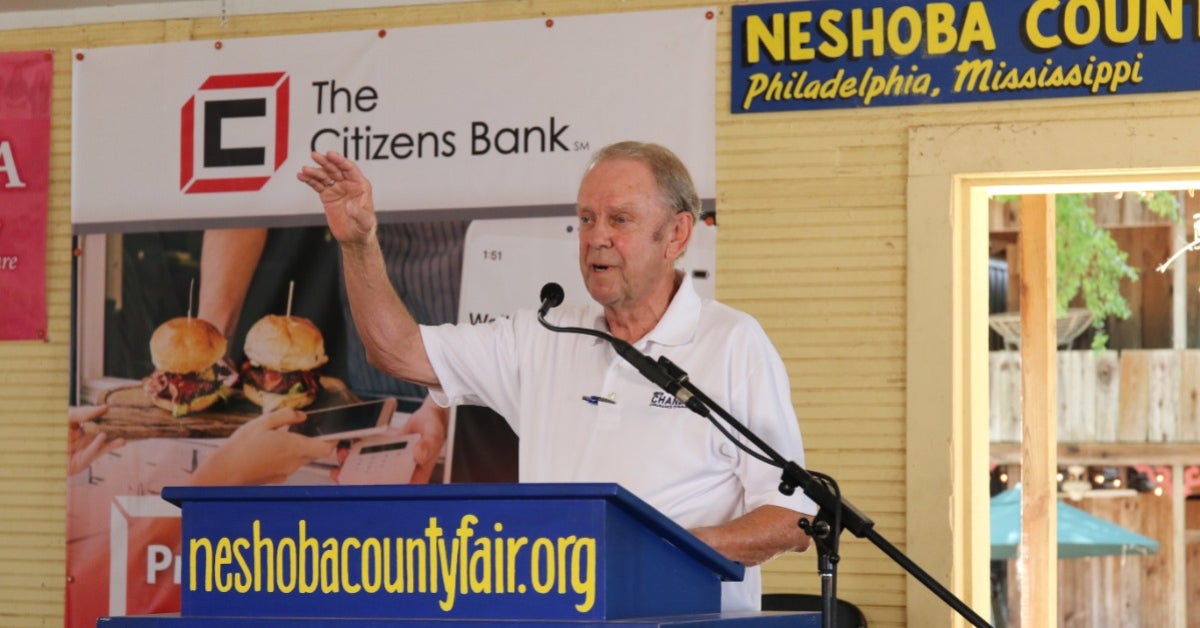Leggett has Super, not-so-super memories of game
Published 12:00 am Monday, February 4, 2002
[01/30/02]RAYMOND Earl Leggett greets a visitor in front of his spacious new home, which rests atop a hill right in the middle of a pristine 117-acre plot. There are well-stocked lakes with gazebos in front and behind the two-story dwelling, a pool and jacuzzi out back.
There’s a sun room perhaps in homage to his Florida roots and other luxuries in the airy, 4,100-square foot dream house he and his wife, Bobbi, built to retire in their adopted hometown of Raymond two years ago.
Then there’s the trophy room … That’s where the story of how he arrived here begins to unfold.
“This was nothing but pastureland when we got here,” Leggett tells his visitor. “It took a lot of work.”
What was a pasture is now prime real estate. And that serves as a perfect metaphor for Leggett’s life and some of the lives he touched during his 36 years of playing and coaching professional football.
Taking raw material and working tirelessly to develop it into something special seems to be Leggett’s specialty.
He played on two of the most storied defenses in NFL history Chicago’s Monsters of the Midway and the Los Angeles Rams’ Fearsome Foursome and coached one of the most notorious defenses in Oakland.
When Leggett, 68, sits down to watch St. Louis and New England square off in Super Bowl XXXVI, his mind will, no doubt, race back to the first Super Bowl he was involved in. He was the defensive line coach for the Raiders, which faced Philadelphia in 1981. That game was also in New Orleans.
“What I remember most is how our guys were out there fighting in practice,” he said, smiling at the memory. “I bet we had five fights in two days. We had to call off practice.”
His linemen were right there in the middle of it all.
Leggett was calm, though.
“I told a friend of mine on that Friday, We’re going to kick the hell out of the Eagles,’ ” he said.
The Raiders won, 27-10.
But it was Leggett’s knack for predicting players’ success that helped him stay in the business for 24 years and win two Super Bowl rings.
“Earl took me to a place physically and mentally that I had no idea I could reach,” Howie Long said during his Pro Football Hall of Fame induction speech in August 2000. “He told me, if you work hard and you do what I tell you to do, I’ll make you wealthy beyond your wildest dreams.’ ”
It seemed like a Long-shot when Leggett said that about an unheralded lineman out of football-poor Villanova. But Long turned out to be Leggett’s prized pupil during the coach’s nine-year stint as a defensive line coach with the Raiders, the longest of his six NFL stops.
“He taught me how to be a man,” Long said in “Football for Dummies,” a book he co-authored.
Leggett, who will be inducted to the Mississippi Sports Hall of Fame at the Vicksburg Convention Center on April 19, had to teach himself how to be a man.
He overcame tragedies in his youth and blossomed at Hinds before going to LSU, where he made All-American and all-SEC despite winning only six games in his two years there.
He made up for that lack of success in Chicago, which drafted him in the first round in 1957. After a season on the offensive line, he moved to the right side of the ball.
On the defensive line, he found his niche as a player and a coach.
“I hate offense,” he said.
Offenses hated him, too. He wreaked havoc on them for nearly four decades.
Only once did a Leggett team allow more than one touchdown in a championship game.
He played for the Bears’ “Monsters of the Midway” with Doug Atkins and Dick Butkus for nine seasons before being traded to the Los Angeles Rams. There, he played with Deacon Jones, Merlin Olsen and Rosey Grier of the famed “Fearsome Foursome.” He spent his last two years with the New Orleans Saints, where he suited up alongside Warren County native Johnny Brewer and ex-Hinds star Jim Taylor.
Super Bowls are familiar to Leggett. He coached in three and won two, both with the Raiders.
They were all rewarding, but none as literally as the NFL championship he won with Chicago against the New York Giants in 1963, four years before the first Super Bowl. It wasn’t the title that made it special.
“That was a $5,200 bonus,” said Leggett, who was a 6-foot-5, 275-pound defensive lineman. “That was a lot of money, because I was only making $9,000 a year.”
He helped the Bears get there, but he had to stand on the sideline for the 14-10 win after getting knee surgery the previous week. Still, he didn’t come away unscathed.
“My toe got frostbit,” he recalled.
He can smile about it because he had grown accustomed to pain that was much worse.
When Leggett was a toddler, his teen-age brother died on the football field in a freak accident. His teammates jumped on him to celebrate a touchdown, but, in the process, pushed his shoulder into a pipe that was sticking out of the ground. Eugene Leggett later died of blood-poisoning.
When Earl Leggett was 12, his father a hardboiled boilermaker died of an abdominal rupture.
Leggett dropped out of school for a few months to get odd jobs to help his mother make ends meet before going to Robert E. Lee High in Jacksonville, Fla. He made a name for himself early as an all-city tackle, and he played in the Florida High School All-Star Game. Then he and two teammates pounced on an opportunity to come to Hinds to finish up high school and play juco football.
“I liked to have never got my mother to sign for me to play,” he recalled.
Leggett moved his family around for years from college stops in Raymond, Louisiana (Nicholls State), Texas (TCU), a stop in California in the World League and NFL stops from Seattle, to San Francisco, to Oakland, to Los Angeles, to Denver, to New York and to Washington, D.C.
His wife got to choose their final home, and she picked the town where they first met. During their travels, they had two sons and two daughters. Their son Brad was all-Pac-10 at USC and played the 1991 season with the Saints.
Leggett began playing for Hinds in 1951, when he was in 11th grade. He played there for four years, back when that was legal, while the Eagles enjoyed incredible success. Hinds went 35-3 during his time there. Leggett finished his career with a 13-7 win over Torrance, Calif., in the 1954 “Little Rose Bowl” in Pasadena.
It was his first flight. And his first taste of success in California.





